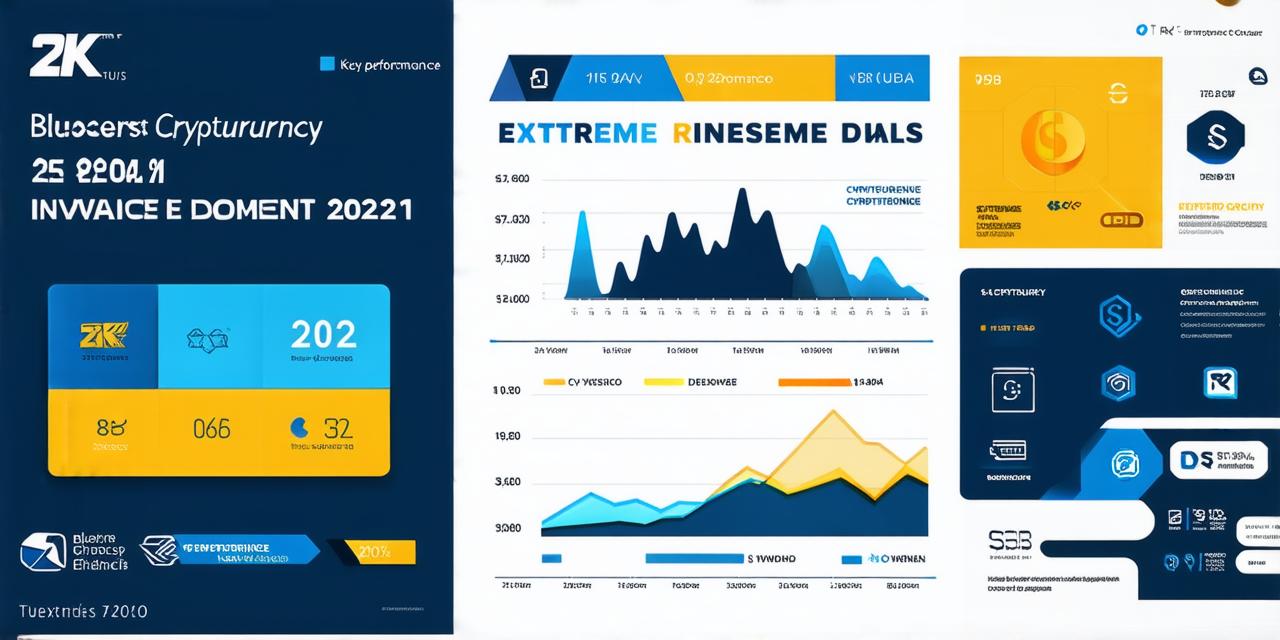Introduction:
The cryptocurrency market is rapidly evolving, with new projects and tokens being introduced every day. As a crypto developer, you’re likely wondering which cryptocurrency to invest in for 2021. In this article, we will explore the top cryptocurrencies that have shown promising signs of growth and stability, and provide insights into their potential for long-term success.
Bitcoin (BTC): The Original Cryptocurrency
Bitcoin is the first and most well-known cryptocurrency. It was created in 2009 by an anonymous individual or group under the pseudonym Satoshi Nakamoto. Bitcoin uses a decentralized, peer-to-peer network to facilitate transactions, with no central authority controlling its supply or direction.

One of Bitcoin’s biggest advantages is its widespread adoption and acceptance. Many merchants and businesses now accept Bitcoin as payment, and it’s increasingly being used for cross-border payments and remittances. Additionally, Bitcoin has a limited supply of 21 million coins, which gives it inherent value and potential for appreciation.
However, Bitcoin’s price volatility can be a disadvantage for some investors. Its value can fluctuate dramatically in short periods, making it a high-risk investment for those with a low risk tolerance. Furthermore, Bitcoin’s energy consumption has been criticized for its negative impact on the environment.
Ethereum (ETH): The Future of Cryptocurrency Development
Ethereum is the second-largest cryptocurrency by market capitalization, after Bitcoin. It was launched in 2015 by Vitalik Buterin and has since become a platform for building decentralized applications (dApps) and smart contracts.
One of Ethereum’s biggest advantages is its versatility. It can be used as both a store of value and a means of payment, and its blockchain technology has the potential to revolutionize many industries, from finance to supply chain management. Additionally, Ethereum’s smart contract capabilities have made it a popular choice for building decentralized applications and platforms.
However, Ethereum’s price volatility can also be a disadvantage, particularly in 2017 when its value reached an all-time high of over $1,300 before crashing to around $400 in 2018. Furthermore, Ethereum’s gas fees, which are the costs associated with executing smart contracts on the network, can be expensive and may deter some users.
Ripple (XRP): The Central Bank’s Cryptocurrency
Ripple is a cryptocurrency that was created in 2012 by Brad Garlinghouse and Chris Larsen. It was designed to facilitate cross-border payments and remittances, with a focus on partnerships with traditional financial institutions. In fact, Ripple has partnerships with over 350 banks and payment providers worldwide.
One of Ripple’s biggest advantages is its stability. Unlike Bitcoin and other cryptocurrencies, Ripple has a fixed supply of 100 billion coins, which gives it inherent value and potential for appreciation. Additionally, Ripple’s partnerships with traditional financial institutions give it the potential to bridge the gap between the traditional and digital worlds, making it an attractive investment opportunity for those who believe in the future of decentralized finance (DeFi).
However, Ripple’s centralized nature can be a disadvantage for some investors. Unlike Bitcoin and Ethereum, which are decentralized and have no central authority controlling their supply or direction, Ripple is controlled by a central authority, Ripple Labs. This raises concerns about censorship and potential misuse of power.
Bitcoin Cash (BCH): A Fork of Bitcoin with Higher Block Sizes
Bitcoin Cash is a fork of Bitcoin that was created in 2017 by a group of miners and developers who believed that Bitcoin’s block size limit of 21 million coins was too low, leading to slow transaction speeds and high fees. They created Bitcoin Cash as a version of Bitcoin with a higher block size limit, allowing for faster and cheaper transactions.
One of Bitcoin Cash’s biggest advantages is its speed and scalability. Transactions on the Bitcoin Cash network are much faster than on the original Bitcoin network, making it an attractive option for businesses and individuals who need to process transactions quickly. Additionally, Bitcoin Cash’s higher block size limit allows for more transactions per block, which could lead to lower fees in the future.
However, Bitcoin Cash’s value is highly volatile, and its price can fluctuate dramatically in short periods. Additionally, Bitcoin Cash has faced criticism for its lack of innovation and failure to differentiate itself from other cryptocurrencies.
Conclusion: The Best Cryptocurrency to Invest in for 2021
In conclusion, there is no one-size-fits-all answer to the question of which cryptocurrency to invest in for 2021. Each cryptocurrency has its own unique advantages and disadvantages, and your decision will depend on your investment goals, risk tolerance, and personal beliefs about the future of decentralized finance and technology.
If you are looking for a stable and versatile cryptocurrency with potential for appreciation and adoption by traditional financial institutions, Ripple may be a good choice. If you believe in the decentralized nature of cryptocurrencies and want to invest in a project that is constantly innovating and improving, Ethereum or Bitcoin could be worth considering.
Ultimately, the best cryptocurrency to invest in for 2021 will depend on your individual circumstances and investment goals. It’s important to do your own research and stay up-to-date with industry developments before making any investment decisions.
